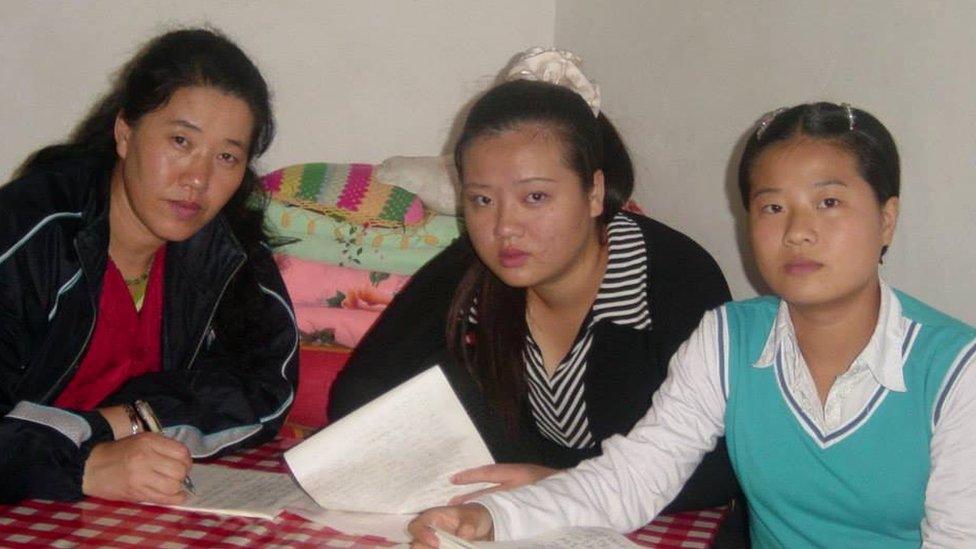Trump Kim summit: Rhetoric versus reality
- Published
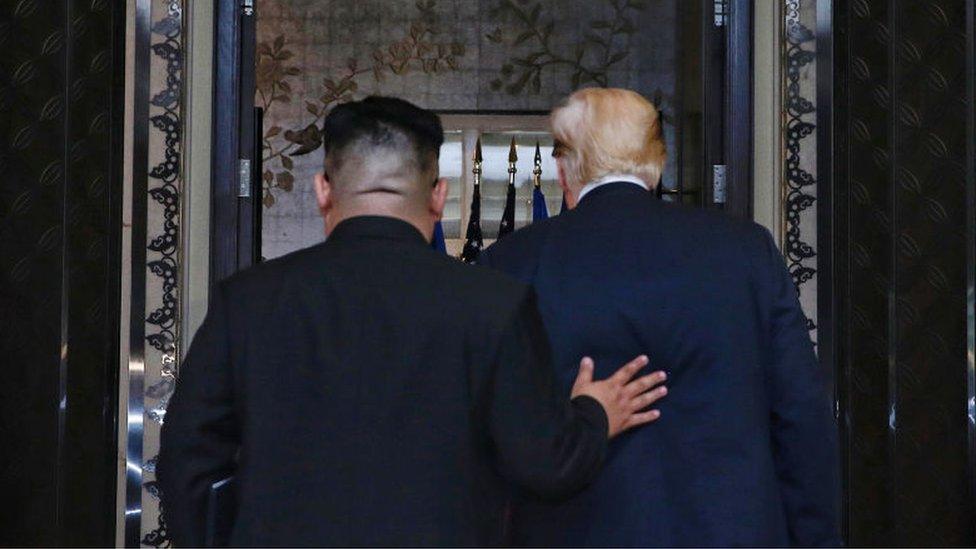
Both leaders appeared pleased with the summit, despite the declaration being relatively vague
Watching reactions to the Singapore summit as it unfolded became the ultimate foreign policy Rorschach test - everyone came away with a different picture of what happened.
There are those who will laud it for establishing a seemingly new approach to US-North Korea relations, one that is more co-operative than confrontational.
There are those who will praise it for abandoning the all-or-nothing negotiation style and opting for a more pragmatic and longer-term process, providing enough time and space to work out the details of where we're headed and how to get there.
Others will see this as having accomplished nothing new or specific on the denuclearisation front and having simply given both leaders the media attention they so crave. Of course, none of these interpretations are mutually exclusive.
The Singapore summit was certainly historic in the sense that this was the first meeting between a North Korean leader and a sitting US president, but the results are harder to judge.
While past US presidents have avoided granting such a meeting without North Korea first making verifiable progress towards dismantling its weapons of mass destruction programmes, Donald Trump has forgone this traditional diplomatic approach for one that could potentially make negotiations more agile.
After all, securing a top down mandate for mutually-agreed-upon goals may generate the political will, priority and personal capital for both sides to sustain this process and see it to the end.
Moreover, the personal relationship now established between Mr Trump and Kim Jong-un may also help prevent us in the future from returning to "fire and fury" at the drop of a dime.
Trump: "The past does not have to define our future"
However, in terms of the substance of the Singapore summit, the declaration signed by the two leaders offered only broad-stroke commitments to peace, denuclearisation and redefining the overall nature of US-North Korea relations.
This language certainly covers the underlying issues encompassed in North Korea's definition of hostile US policy, but the lack of detail and the mirroring of past commitments is concerning.
At the very least there were expectations (or strong desires) that this summit would establish a mutual understanding of what the US considers the core issue: what "denuclearisation of the Korean peninsula" actually means, especially with respect to South Korea and the role of US extended deterrence.
What is it that the US and North Korea are actually committing to? And at what point during this process will we gain that understanding? How do we measure success if we have not set clear goals?
South Korea caught off-guard?
While the vague language is not all that unusual for a summit declaration, the details revealed by President Trump during his post-summit press conference about specific measures may raise even more questions and highlight the challenges of moving forward with parallel bilateral negotiation tracks.
The one issue Mr Trump seemed to make clear was that US-South Korea joint military exercises would be suspended while negotiations were ongoing. This has long been a point of contention for the North Koreans, especially as the exercises have expanded to include offensive drills, but it raises the question of how this concession fits into a larger process.
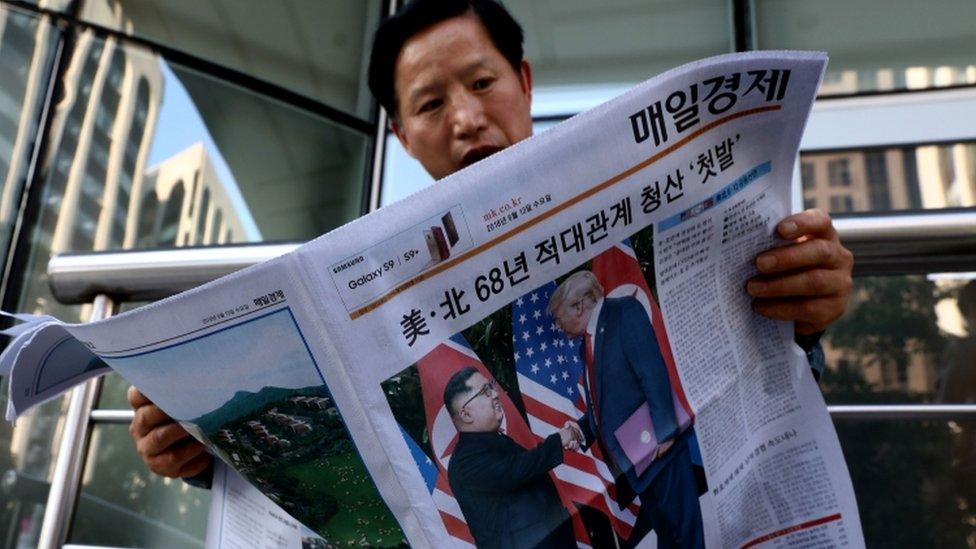
Mr Trump said the joint US-South Korea exercises were expensive and provocative
The reaction out of Seoul on this point seems to indicate that, despite Mr Trump's call with South Korean President Moon Jae-in before the summit, the Blue House was once again caught off-guard by this announcement.
This lack of co-ordination, or at least communication, with allies during negotiations causes rifts that can be exploited in parallel processes and, unless addressed, will weaken both US and South Korean negotiating power.
Overall, both Mr Trump and Mr Kim walked away pleased with what they had accomplished and the publicity of their historic meeting. The most important commitment made was to continue high-level engagement to fill in the details of the agenda the declaration laid out.
This certainly could be the catalyst needed on both sides to take the process further than where we have been able to get to before, but it will still be a negotiation, and Kim Jong-un's diplomatic debut over the past few months, culminating in his incredible reception in Singapore, has increased North Korea's confidence and negotiating power.
While it is welcome that we are moving away from a path towards war, the test is now on the Trump administration to see if it has the political will to sustain this process and move the negotiation past broad commitments towards durable and sustainable solutions.
Jenny Town is a research analyst at the Stimson Center and the managing editor of 38 North.
- Published12 June 2018

- Published12 June 2018
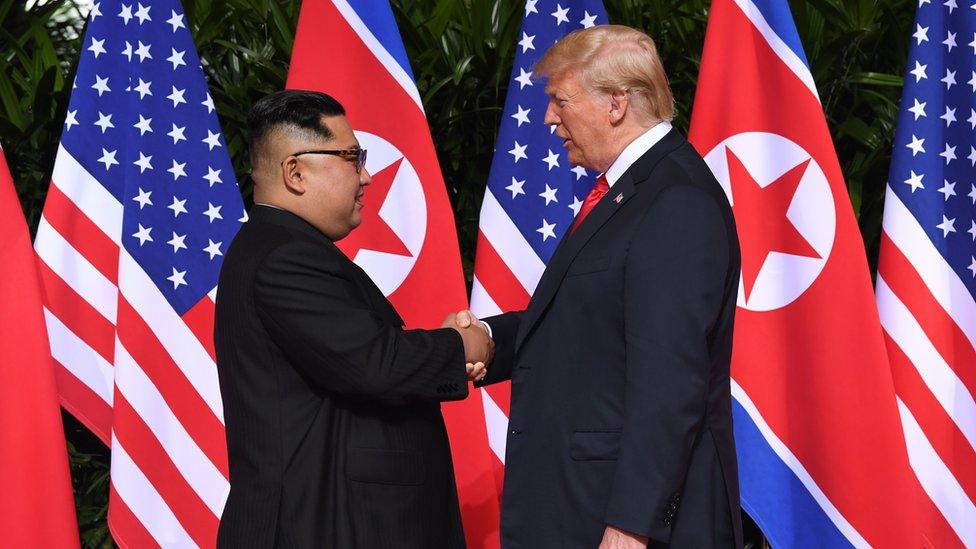
- Published12 June 2018

- Published12 June 2018

- Published12 June 2018
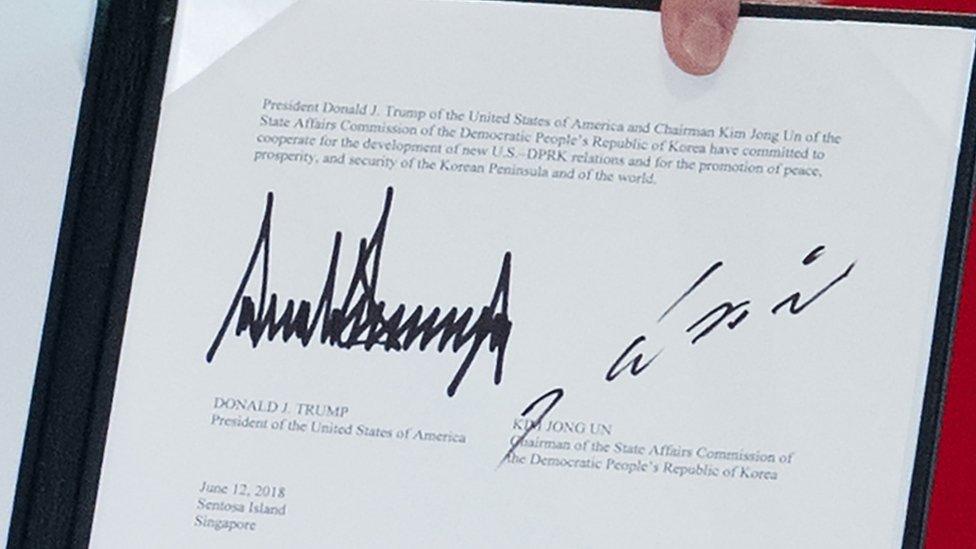
- Published12 June 2018
